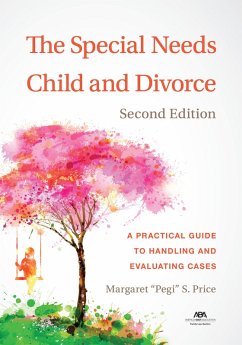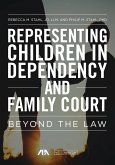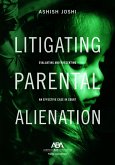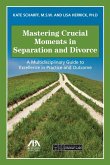Family lawyers are dealing with a burgeoning number of cases involving special needs children. These families have much higher divorce rates and their cases often involve more specialized handling. To meet these demands, this book takes a practical look at what special needs are, how they are relevant in the arena of divorce, and what lawyers can do to make the system work better for these children and their families.
Special needs are often determined following the categories that the public education system considers eligible for special education services, including autism, physical limitation and health impairment, emotional disturbance, learning disability, and developmental delay, among many others. The author begins by discussing what special needs are in terms of legislation and how such cases are evaluated and then handled in the court. Issues addressed include the initial interview, drafting divorce petitions and motions, and legislation and case law.
The Special Needs Child and Divorce, Second Edition examines how child support guidelines and standard visitation schedules often don't meet the needs of special needs children, and Chapter 6 provides a model child support chart, parenting plan, and modification for these cases. Subsequent chapters address other aspects raised by handling a case with a special needs child, including maintenance and property division, the roles of the parties in the divorce process, guardianships, special needs trusts, and other estate planning issues.
Drawn from her years of experience in handling divorce and family court cases involving special needs children, the author provides numerous practice tips throughout the book. In addition, she includes valuable sample language and forms throughout the text that illustrate how modifications are needed to adequately address issues raised by a special needs child. Other chapters offer sample forms and documents that have been developed or adapted for use in divorce cases involving children with special needs and checklists to help guide you through the key elements of handling the case.
Special needs are often determined following the categories that the public education system considers eligible for special education services, including autism, physical limitation and health impairment, emotional disturbance, learning disability, and developmental delay, among many others. The author begins by discussing what special needs are in terms of legislation and how such cases are evaluated and then handled in the court. Issues addressed include the initial interview, drafting divorce petitions and motions, and legislation and case law.
The Special Needs Child and Divorce, Second Edition examines how child support guidelines and standard visitation schedules often don't meet the needs of special needs children, and Chapter 6 provides a model child support chart, parenting plan, and modification for these cases. Subsequent chapters address other aspects raised by handling a case with a special needs child, including maintenance and property division, the roles of the parties in the divorce process, guardianships, special needs trusts, and other estate planning issues.
Drawn from her years of experience in handling divorce and family court cases involving special needs children, the author provides numerous practice tips throughout the book. In addition, she includes valuable sample language and forms throughout the text that illustrate how modifications are needed to adequately address issues raised by a special needs child. Other chapters offer sample forms and documents that have been developed or adapted for use in divorce cases involving children with special needs and checklists to help guide you through the key elements of handling the case.
Dieser Download kann aus rechtlichen Gründen nur mit Rechnungsadresse in A, D ausgeliefert werden.









